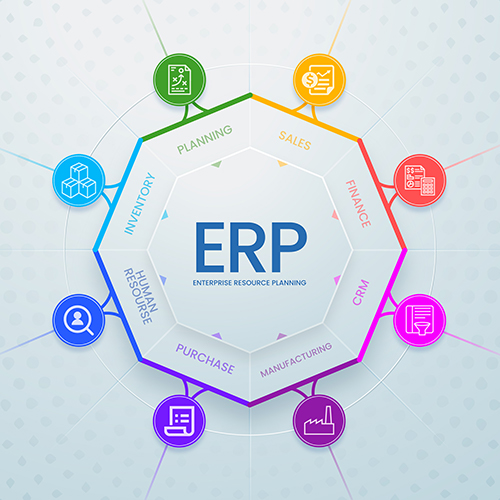Key Components of ERP Systems
1. Finance and Accounting:
- Manages financial transactions, accounts payable/receivable, fixed assets, and financial reporting.
- Ensures compliance with accounting standards and provides a comprehensive view of financial performance.
- Manages employee information, payroll, recruitment, performance evaluation, and training.
- Helps in workforce planning and development.
- Manages production planning, scheduling, and control.
- Oversees the procurement of raw materials, inventory management, and order processing.
- Ensures efficient supply chain operations from supplier to customer.
2. Human Resources:
3. Manufacturing and Production:
Includes Bill of Materials (BOM), work orders, and production tracking.
4. Supply Chain Management:



5. Sales and Marketing:
- Manages sales orders, customer relationship management (CRM), and marketing campaigns.
- Helps track customer interactions and sales performance.
- Tracks inventory levels, manages stock movements, and optimizes inventory levels.
- Ensures that inventory is available to meet demand without excess.
- Manages customer data, sales leads, and customer support.
- Manages project planning, execution, and monitoring.
- Helps in resource allocation and tracking project progress.
6. Inventory Management:
7. Customer Relationship Management (CRM):
Enhances customer service and builds long-term customer relationships.
8. Project Management: